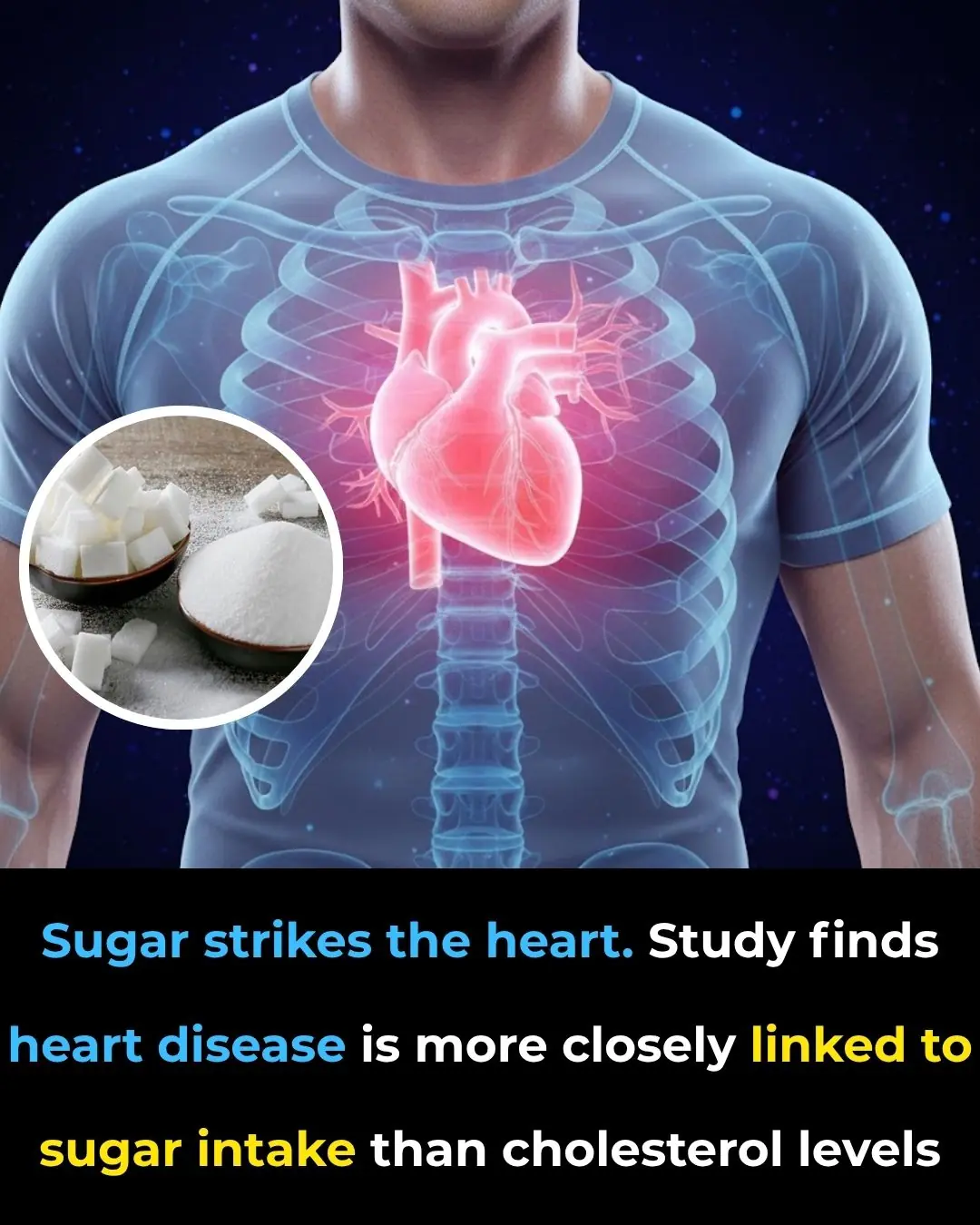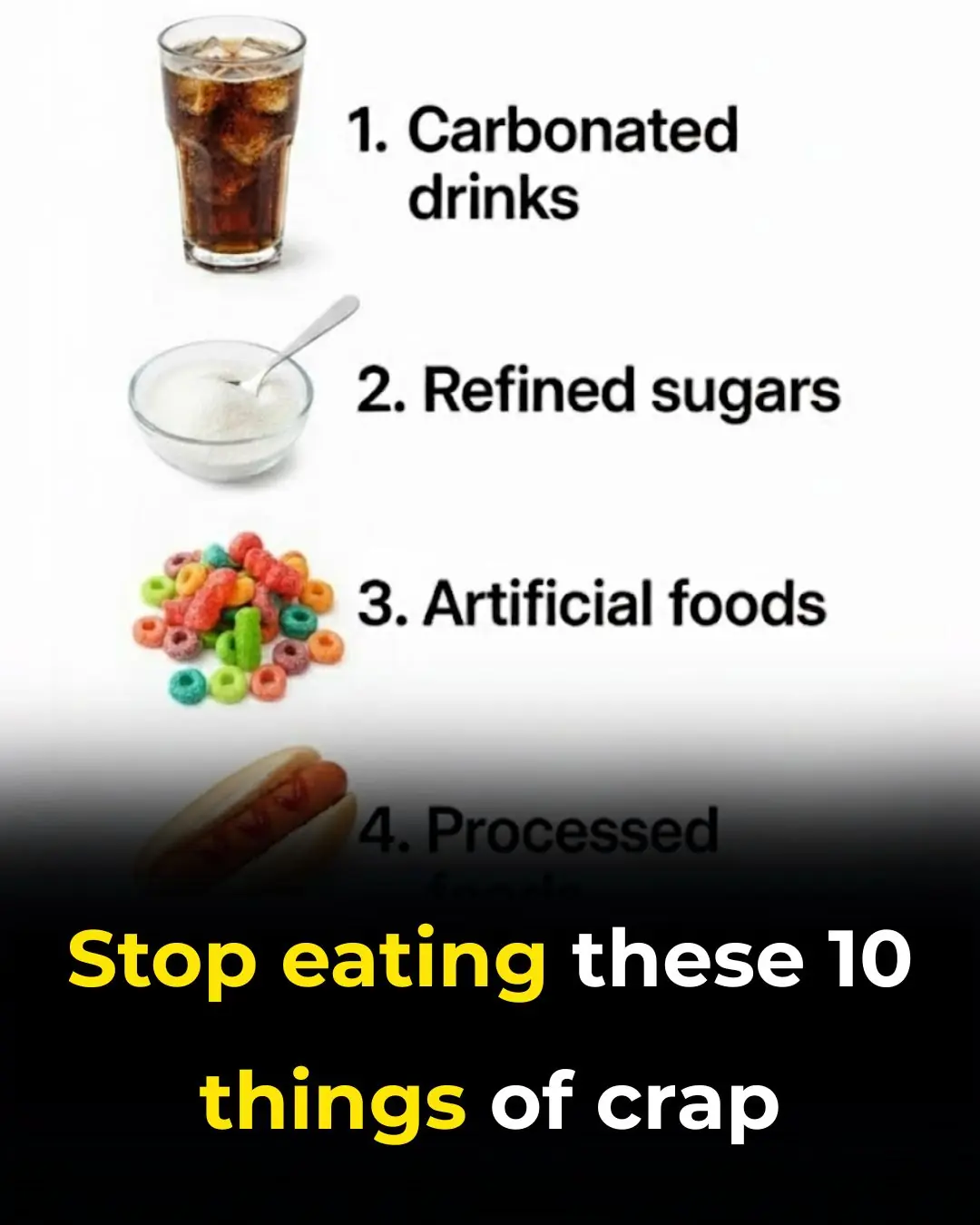
Sugar May Be a Bigger Threat to Heart Health Than Cholesterol, New Study Finds

Rewritten and Expanded Version (with Credible Sources Added)
A growing body of scientific evidence suggests that sugar consumption may pose a more serious threat to heart health than cholesterol, challenging long-held assumptions about the primary drivers of cardiovascular disease. According to a recent study, diets rich in added sugars—particularly those found in sweetened beverages, processed snacks, and packaged foods—are linked to a significantly higher risk of heart disease, stroke, and related complications than previously understood.
Researchers have uncovered several mechanisms explaining why excessive sugar intake harms the cardiovascular system. High levels of added sugars contribute to chronic inflammation, elevate triglyceride levels, and promote insulin resistance, all of which place considerable strain on the heart and blood vessels. Over time, these metabolic disturbances can accelerate the development of atherosclerosis, hypertension, and other cardiovascular disorders. While cholesterol has traditionally been viewed as the leading culprit behind heart disease, this new evidence suggests that curbing added sugar may yield more immediate and substantial benefits for heart protection.
These findings are reinforced by established public-health guidelines. For example, the World Health Organization (WHO) recommends limiting added sugar to less than 10% of daily energy intake, noting that lower consumption—ideally below 5%—provides even greater health advantages. Similarly, the American Heart Association (AHA) warns that excessive sugar can drastically increase cardiovascular risk, particularly when consumed in the form of sugary drinks. Studies published in JAMA Internal Medicine and Circulation, two respected peer-reviewed journals, have also reported that individuals obtaining a significant portion of their daily calories from added sugars face a markedly higher likelihood of dying from heart disease. Meanwhile, data from the U.S. Centers for Disease Control and Prevention (CDC) highlight the role of sugar-sweetened beverages as the largest source of added sugar in the modern diet, underscoring the urgency of dietary change.
Experts therefore emphasize a shift toward balanced, whole-food-based nutrition. This includes prioritizing fruits, vegetables, whole grains, lean proteins, and healthy fats while reducing dependence on processed products high in hidden sugars. Simple lifestyle adjustments—such as replacing soda with water or unsweetened tea, limiting desserts, choosing snacks like nuts or fresh fruit, and reading ingredient labels more carefully—can collectively make a significant difference in long-term cardiovascular well-being.
Ultimately, this research challenges conventional wisdom and highlights the need to view sugar reduction as a central strategy for heart-health management. By understanding the broader impact of added sugars and making thoughtful dietary choices, individuals can take meaningful steps toward protecting their cardiovascular system and improving overall health.
News in the same category


Eating More Than One Egg a Week May Slash Alzheimer’s Risk by 47%

CRISPR Breakthrough Offers Hope for a Potential HIV Cure

Four Teens Risk Their Lives to Rescue Elderly Neighbor from Burning Home in Sapulpa

Beware of the Plastic Bottle Scam

Had no clue about this

For those who sleep with wet hair, you should know that…

Hidden Message Behind Finding a White Feather

Why We Can’t Sleep Without a Blanket Even on Hot Nights

Revolutionary mRNA Therapy Shows Promise in Preventing Pancreatic Cancer Recurrence

MIT Scientists Develop Injectable Gel That Can Fully Repair Nerves and Restore Sensation

A New Era of Computing: China’s Quantum Machine Surpasses the World’s Fastest Supercomputers

Reviving the Brain’s Waste-Clearing Pathways May Reverse Alzheimer’s Damage

New CRISPR Therapy Shows Promise in Removing HIV and Preventing Viral Rebound

Japanese Scientists Develop Drug That Could Regrow Human Teeth

White House Gives Major Update On Donald Trump's

What’s with the white paint on the tree trunks?

If You See A Bent Tree In The Forest, Start Looking Around Immediately
News Post

Belgium’s Floating Algae Mats: A Green Breakthrough in Urban Water Purification

France Reimagines Shelter Boundaries With Community Corn Walls

5 Simple Ways to Remove Rust from Knives – Make Your Dull, Rusty Knife Shiny and Sharp Again

5 Fruits on the ‘Blacklist’ That Can Cause Cancer – Avoid Buying Even If Cheap

“New Research Reveals How Aging Impacts Male Fertility and Sperm Health”

Pork Skin – The Often Overlooked Superfood

Don’t Throw Away Lemon Peels! Use Them for These 8 Household Tasks and Save a Ton of Money

10 surprising ways to use vinegar around the house

Stop eating these 10 things of CRAP

Mix Banana Peels With This and Leave It in a Corner — Roaches Will Disappear Overnight

Discover how eggs support your baby’s brain development — full details in the comments!”

Weak Toilet Flush and No Suction? A Simple Trick From a Professional That Fixes It Instantly

Five “Dirtiest” Parts of the Pig That Butchers Never Take Home for Their Own Families

Blueberries: A Powerful Daily Boost for Heart Health

The Whole Family of Three Was Diagnosed With Thyroid Nodules; the Mother Collapsed: “I Thought Those Two Things Were Always Good to Eat and Could Prevent Cancer”

Motherhood Rewires the Brain: Why Postpartum Recovery Takes Years, Not Weeks

Eating More Than One Egg a Week May Slash Alzheimer’s Risk by 47%

CRISPR Breakthrough Offers Hope for a Potential HIV Cure

Breakthrough Cancer Treatment Offers Unprecedented Hope for Patients
